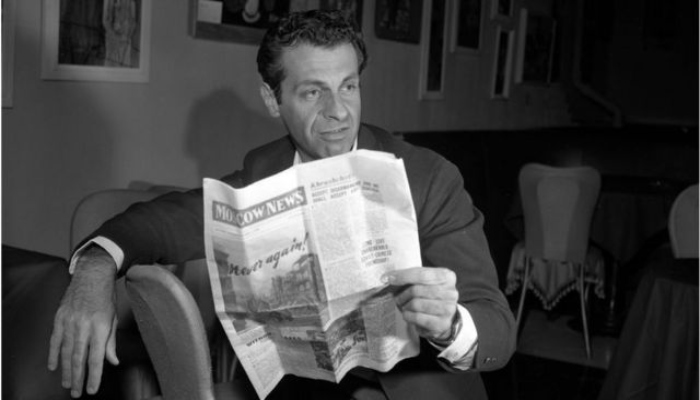US comedian Mort Sahl passes away aged 94
Sahl was credited with influencing comedians such as George Carlin, Woody Allen and Jonathan Winters
October 27, 2021

Mort Sahl, who strolled onstage with a newspaper and shook up the comedy world in the 1950s and '60s with a groundbreaking critical look at American life and politics, died on Tuesday at the age of 94, the New York Times and Washington Post reported.
Sahl, who was widely considered the father of modern political satire, died at his home near San Francisco, the newspapers cited a friend as saying. She did not give a cause of death. Reuters could not immediately independently confirm the death.
Sahl was credited with influencing comedians such as George Carlin, Woody Allen and Jonathan Winters. He was also a friend of another comedy mold-breaker, Lenny Bruce, although his act did not include profanity as Bruce's did.
His "Mort Sahl at Sunset," released in 1955, was the first stand-up comedy album and three years later, he had a Broadway show.
Morton Lyon Sahl was born in Montreal on May 11, 1927, and grew up in Los Angeles. He graduated from the University of Southern California, and moved to the San Francisco area in the early 1950s to try comedy. He lived in his car part of the time before building a following at San Francisco's legendary hungry i nightclub and then going on the road.
By 1960, Sahl had become so popular that Time magazine, which called him "Will Rogers with fangs," put him on its cover - the first time a comedian had ever been so honored.
Sahl's stage presence was different from the standard of the 1950s. He dressed informally in V-neck sweaters and was more irreverent, more intellectual, more hip and less rehearsed than his coat-and-tie contemporaries spouting mother-in-law jokes.
Sahl took the stage with a newspaper and only an outline of an act while perching on a stool and relying on improvisation and responding to his audience. He would read from the newspaper to launch his comic riffs on the day's events with a quick-fire delivery that earned him the nickname "Rebel Without a Pause." He simply declared: "Onward" when he was ready to change topics.
"It wasn't that he did political comedy - as everyone keeps insisting," Allen was quoted as saying in the book "Seriously Funny: The Rebel Comedians of the 1950s and 1960s."
"It was that he had genuine insights. He made the country receptive to a kind of comedy it wasn't used to hearing. He made the country listen to jokes that required them to think," said Allen, the filmmaker and comedian.











